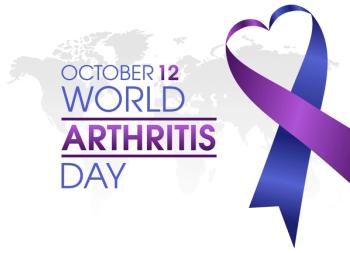
Arthritis care remains fragmented and costly, with access disparities prompting calls for preventive strategies, community resources, and systemic improvements.

Arthritis care remains fragmented and costly, with access disparities prompting calls for preventive strategies, community resources, and systemic improvements.

Emma Guttman, MD, PhD, discusses the promising potential of rocatinlimab in targeting the OX40-OX40 ligand pathway for atopic dermatitis treatment.

Researchers found that even smaller open artificial intelligence (AI) models outperformed clinicians, supporting automation of International Classification of Disease (ICD) coding.
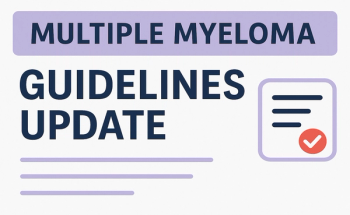
On July 2, linvoseltamab-gcpt (Lynozyfic; Regeneron) received an accelerated approval from the FDA in relapsed/refractory multiple myeloma (MM), and the most recent update to the National Comprehensive Cancer Network guidelines for MM has added the BCMA-targeted bispecific antibody as a preferred treatment option.

Following the FDA approval of linvoseltamab (Lynozyfic; Regeneron) for heavily pretreated multiple myeloma, Sundar Jagannath, MBBS, highlights its potential for earlier use, increased accessibility, and greater competition in the B-cell maturation antigen (BCMA) bispecific antibody space.

The newly FDA-approved linvoseltamab (Lynozyfic; Regeneron) may improve access to multiple myeloma treatment by offering an off-the-shelf, outpatient option that can be administered in community settings, according to Sundar Jagannath, MBBS.

The FDA’s approval of linvoseltamab for adults with heavily pretreated relapsed/refractory multiple myeloma marks a significant advance, with Sundar Jagannath, MBBS, emphasizing its high response rates, manageable dosing schedule, and reduced treatment burden.

INCA33989 continues to show strong safety and early signs of disease modification in essential thrombocythemia, according to John Mascarenhas, MD, with next steps focused on optimizing dosing and delivery scheduling.

John Mascarenhas, MD, discusses phase 1 data showing that INCA33989 is a well-tolerated therapy for calreticulin–mutant essential thrombocythemia, with early signs of efficacy and potential disease modification.

John Mascarenhas, MD, discusses the rationale, mechanism, and design of the phase 1 INCA33989-101 and -102 trials investigating a CAL-R–targeted antibody for patients with essential thrombocythemia.

Long-term CARTITUDE-1 data show ciltacabtagene autoleucel (cilta-cel) may offer lasting remission and survival in relapsed/refractory multiple myeloma, according to Sundar Jagannath, MBBS, of the Icahn School of Medicine at Mount Sinai.
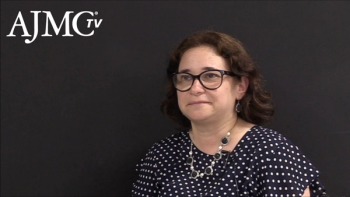
Early results from the phase 1 SANRECO trial suggest that divesiran is safe and well tolerated, and may reduce the need for phlebotomy in patients with polycythemia vera by increasing hepcidin levels and improving iron regulation, according to lead investigator Marina Kremyanskaya, MD, PhD.

Sundar Jagannath, MBBS, highlights long-term follow-up data from the phase 1b/2 CARTITUDE-1 trial, showing durable responses and potential cures with ciltacabtagene autoleucel in patients with relapsed/refractory multiple myeloma.
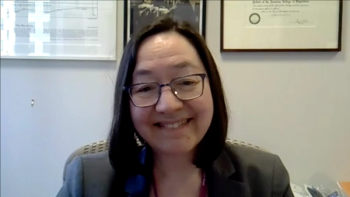
In the final part of her interview, Margrit Wiesendanger, MD, PhD, discusses the need to improve lupus care by addressing social determinants of health and expanding access to treatment.

Margrit Wiesendanger, MD, PhD, highlights how social determinants of health and equitable treatment access are critical to improving lupus outcomes, particularly in minority populations.

Margrit Wiesendanger, MD, PhD, discusses how lupus treatment is evolving from traditional therapies to more targeted options like biologics, with promising advances now being explored in clinical trials.

Margrit Wiesendanger, MD, PhD, explores lupus symptoms, diagnosis challenges, and the importance of early detection to prevent inflammation-related damage.

Benjamin K. Chen, MD, PhD, discussed the next steps after the results of his study in genetic tagging showed promise in targeting HIV cells.

Benjamin Chen, MD, PhD, of the Icahn School of Medicine at Mount Sinai, discusses the implications of his new study involving genetically tagging immune cells with latent HIV.
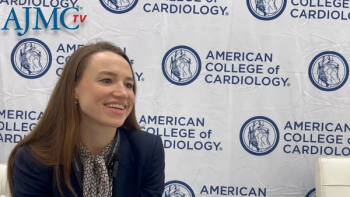
Anna Mueller, MD, Mount Sinai, presented the findings at the American College of Cardiology 2025 Annual Scientific Session and explained that broader adoption of imaging assessments will depend on further research.

Maria L. Padilla, MD, Icahn School of Medicine at Mount Sinai, previews that experts will discuss critical management strategies for interstitial lung disease and idiopathic pulmonary fibrosis, including the latest diagnosis and treatment protocol advancements, at Advances in Pulmonary Medicine 2024.

Camilla Levister, MS, ANP-C, CDCES, a nurse practitioner at the Icahn School of Medicine at Mount Sinai Hospital in New York, gives insight into the nuances of testing closed-loop insulin delivery systems for pregnant women.

Camilla Levister, MS, ANP-C, CDCES, a nurse practitioner at the Icahn School of Medicine at Mount Sinai Hospital in New York, discusses how closed-loop systems benefit patients managing type 1 diabetes.

Kirk Campbell, MD, FASN, vice chair for diversity, equity, and inclusion in the Department of Medicine at Mount Sinai Health System in New York, spoke on health equity efforts by his organization to improve clinical outcomes through demographic data collection, educational research, and workforce training.

259 Prospect Plains Rd, Bldg H
Cranbury, NJ 08512
© 2025 MJH Life Sciences®
All rights reserved.
